DS Automobiles DS 9 vs Mercedes S Class – Which one offers the better deal?
Compare performance, boot capacity, efficiency and price at a glance.
Find out which car is the better choice for you – DS Automobiles DS 9 or Mercedes S Class?
Costs and Efficiency:
When it comes to price and running costs, the biggest differences usually appear. This is often where you see which car fits your budget better in the long run.
DS Automobiles DS 9 has a significantly advantage in terms of price – it starts at 55100 £, while the Mercedes S Class costs 97200 £. That’s a price difference of around 42090 £.
Fuel consumption also shows a difference: DS Automobiles DS 9 manages with 1.20 L and is therefore convincingly more efficient than the Mercedes S Class with 2.30 L. The difference is about 1.10 L per 100 km.
As for range, the Mercedes S Class performs evident better – achieving up to 117 km, about 42 km more than the DS Automobiles DS 9.
Engine and Performance:
Under the bonnet, it becomes clear which model is tuned for sportiness and which one takes the lead when you hit the accelerator.
When it comes to engine power, the Mercedes S Class has a significantly edge – offering 802 HP compared to 360 HP. That’s roughly 442 HP more horsepower.
In acceleration from 0 to 100 km/h, the Mercedes S Class is convincingly quicker – completing the sprint in 3.30 s, while the DS Automobiles DS 9 takes 5.60 s. That’s about 2.30 s faster.
There’s no difference in top speed – both reach 250 km/h.
There’s also a difference in torque: Mercedes S Class pulls significantly stronger with 1430 Nm compared to 520 Nm. That’s about 910 Nm difference.
Space and Everyday Use:
Cabin size, boot volume and payload all play a role in everyday practicality. Here, comfort and flexibility make the difference.
Both vehicles offer seating for 5 people.
In curb weight, DS Automobiles DS 9 is a bit lighter – 1864 kg compared to 2070 kg. The difference is around 206 kg.
In terms of boot space, the Mercedes S Class offers slight more room – 550 L compared to 510 L. That’s a difference of about 40 L.
When it comes to payload, Mercedes S Class noticeable takes the win – 730 kg compared to 489 kg. That’s a difference of about 241 kg.
Who wins the race?
The Mercedes S Class proves to be is largely superior and therefore becomes our DriveDuel Champion!
Mercedes S Class is the better all-rounder in this comparison.
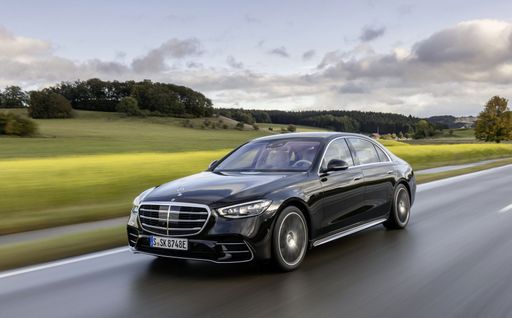
Mercedes S Class
DS Automobiles DS 9
The DS 9 stands out in the luxury sedan segment with its elegant design and refined craftsmanship, embodying the essence of French automotive artistry. Inside, it offers a plush and sophisticated atmosphere, equipped with advanced technology that enhances both comfort and driving pleasure. With its emphasis on performance and style, the DS 9 is a compelling choice for those seeking a unique blend of luxury and dynamism on the road.
details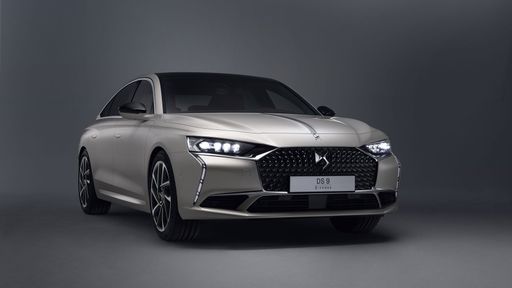 @ media.stellantis.com
@ media.stellantis.com
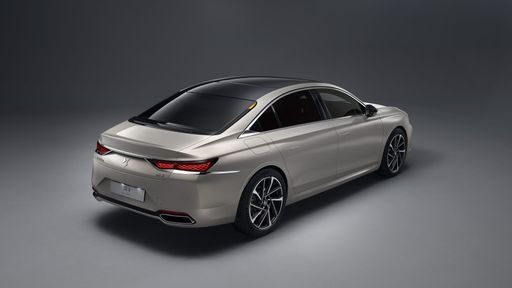 @ media.stellantis.com
@ media.stellantis.com
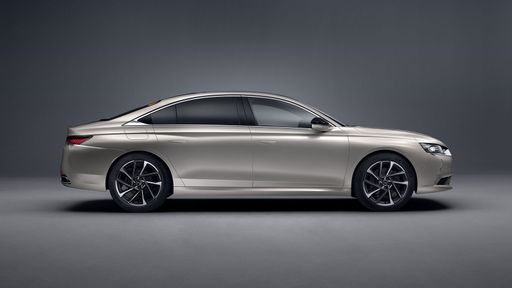 @ media.stellantis.com
@ media.stellantis.com
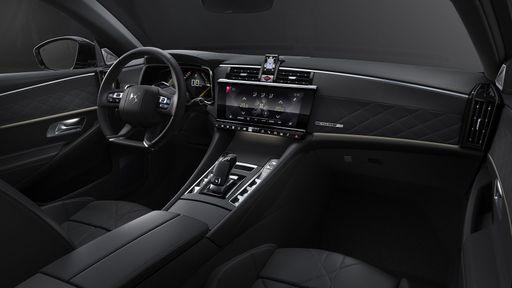 @ media.stellantis.com
@ media.stellantis.com
Mercedes S Class
The Mercedes-Benz S-Class stands as a symbol of luxury and innovation in the automotive world, seamlessly blending cutting-edge technology with timeless elegance. Inside, the cabin offers an unparalleled level of comfort and sophistication, featuring high-quality materials and advanced infotainment systems that cater to the most discerning of drivers. On the road, the S-Class delivers an exceptionally smooth and engaging driving experience, ensuring that it remains a leader in its class.
details @ group-media.mercedes-benz.com
@ group-media.mercedes-benz.com
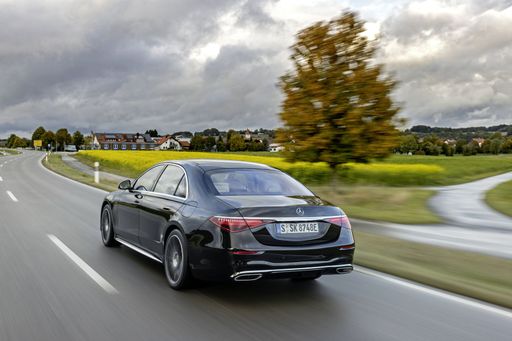 @ group-media.mercedes-benz.com
@ group-media.mercedes-benz.com
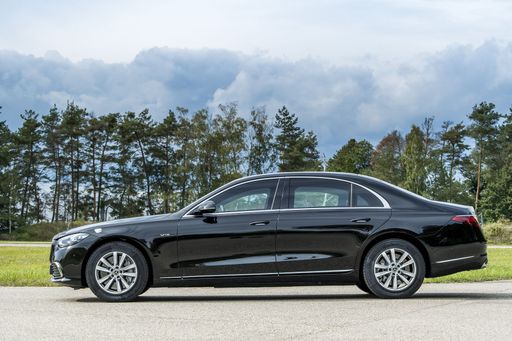 @ group-media.mercedes-benz.com
@ group-media.mercedes-benz.com
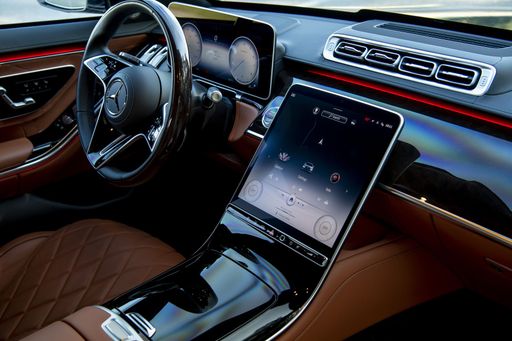 @ group-media.mercedes-benz.com
@ group-media.mercedes-benz.com
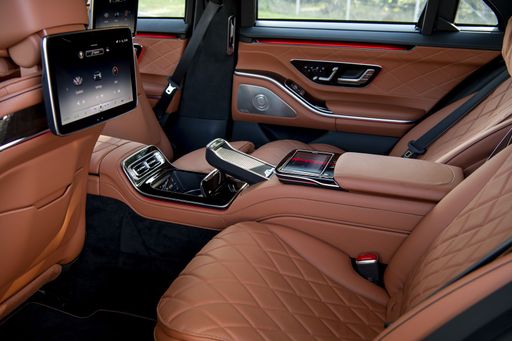 @ group-media.mercedes-benz.com
@ group-media.mercedes-benz.com
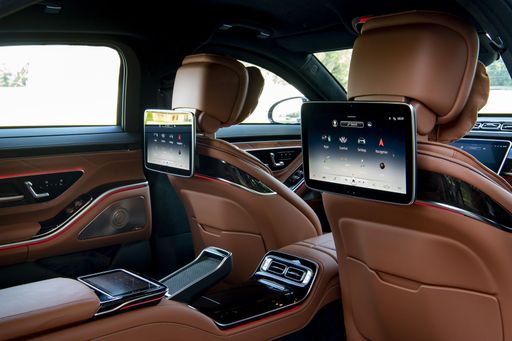 @ group-media.mercedes-benz.com
@ group-media.mercedes-benz.com

|

|
|
|
|
Costs and Consumption |
|
|---|---|
|
Price
55100 - 74100 £
|
Price
97200 - 204400 £
|
|
Consumption L/100km
1.2 - 1.7 L
|
Consumption L/100km
2.3 - 13.2 L
|
|
Consumption kWh/100km
-
|
Consumption kWh/100km
-
|
|
Electric Range
62 - 75 km
|
Electric Range
31 - 117 km
|
|
Battery Capacity
-
|
Battery Capacity
10.40 kWh
|
|
co2
28 - 38 g/km
|
co2
52 - 301 g/km
|
|
Fuel tank capacity
42 L
|
Fuel tank capacity
65 - 76 L
|
Dimensions and Body |
|
|---|---|
|
Body Type
Sedan
|
Body Type
Sedan
|
|
Seats
5
|
Seats
5
|
|
Doors
4
|
Doors
4
|
|
Curb weight
1864 - 1931 kg
|
Curb weight
2070 - 2650 kg
|
|
Trunk capacity
510 L
|
Trunk capacity
325 - 550 L
|
|
Length
4934 mm
|
Length
5179 - 5469 mm
|
|
Width
1855 mm
|
Width
1921 - 1954 mm
|
|
Height
1459 mm
|
Height
1503 - 1515 mm
|
|
Max trunk capacity
-
|
Max trunk capacity
-
|
|
Payload
486 - 489 kg
|
Payload
420 - 730 kg
|
Engine and Performance |
|
|---|---|
|
Engine Type
Plugin Hybrid
|
Engine Type
Petrol MHEV, Petrol, Plugin Hybrid, Diesel MHEV
|
|
Transmission
Automatic
|
Transmission
Automatic
|
|
Transmission Detail
Automatic Gearbox
|
Transmission Detail
Automatic Gearbox
|
|
Drive Type
Front-Wheel Drive, All-Wheel Drive
|
Drive Type
All-Wheel Drive, Rear-Wheel Drive
|
|
Power HP
250 - 360 HP
|
Power HP
336 - 802 HP
|
|
Acceleration 0-100km/h
5.6 - 8.1 s
|
Acceleration 0-100km/h
3.3 - 5.9 s
|
|
Max Speed
240 - 250 km/h
|
Max Speed
250 km/h
|
|
Torque
320 - 520 Nm
|
Torque
500 - 1430 Nm
|
|
Number of Cylinders
4
|
Number of Cylinders
6 - 12
|
|
Power kW
183 - 265 kW
|
Power kW
247 - 590 kW
|
|
Engine capacity
1598 cm3
|
Engine capacity
2989 - 5980 cm3
|
General |
|
|---|---|
|
Model Year
2021 - 2023
|
Model Year
2024 - 2025
|
|
CO2 Efficiency Class
B
|
CO2 Efficiency Class
G, E, F, B
|
|
Brand
DS Automobiles
|
Brand
Mercedes-Benz
|
What drivetrain options does the DS Automobiles DS 9 have?
Available configurations include Front-Wheel Drive or All-Wheel Drive.
The prices and data displayed are estimates based on German list prices and may vary by country. This information is not legally binding.
